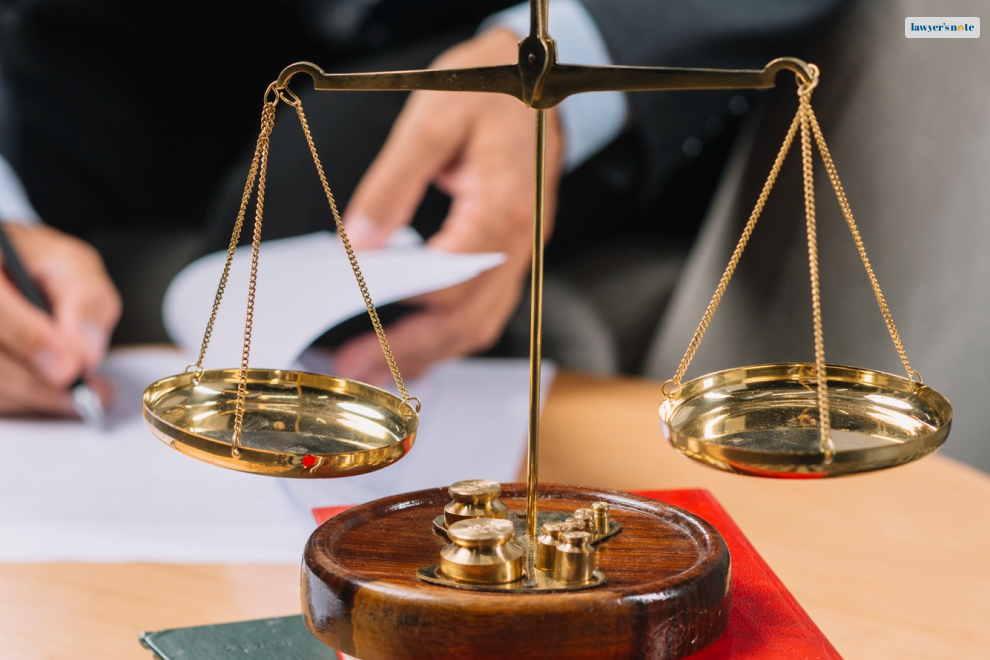Defense Lawyer In Gwinnett County: Expert Legal Representation
Navigating the legal landscape in Gwinnett County, Georgia, requires skilled guidance, especially when facing criminal charges. Our dedicated criminal defense....
1350 Views

Are you wondering what falls under trespassing charges in the United States? Worry not; we have got you covered. Trespassing is an offense in the US that falls under the category of misdemeanor. In this article, we will be discussing what constitutes trespassing and what the charges that can be pressed against someone held of this offense are.

In simple terms, trespassing is the offense of knowingly entering someone’s property or land without their permission. Similarly, this offends the owner’s privacy or interest in their property.
On the other hand, trespassing is an offense that falls under a variety of laws. These include tort law and criminal law. But, in this article, we are only concerned with the explanation of trespassing related to tort law.

According to tort law, trespassing is the act of unjustifiable physical interference with property in the possession of another party or parties. Moreover, trespassing within tort law is categorized into three distinctive groups. Let us go through these three groups of trespassing below:
According to tort, if a person physically invades an owner’s real property or causes an object or third party to invade it, then it might be liable for trespassing on land. Moreover, as this act is considered to be intentional, it has been observed that to prove the act, you must prove “intent.”
On the other hand, even if there was no intent of trespassing present, intent to enter or remain on the property is required for pressing charges. This is irrespective of whether the trespasser knows the property is owned by someone else.
Moreover, the owner of the property is not required to prove that they have actually suffered any actual damages. Similarly, this is regarding damages that might reduce the value of the property. But nominal damage is enough to claim that compensation is permissible.
Another type of trespassing is trespassing on chattels. If someone has the right to make use of a legally possessed personal property, and it is intentionally deprived or deterred, it is termed under this. Moreover, intermeddling with a chattel is innocent, it does not fall under trespassing.
Similarly, to prove trespass on chattels, actual damage is required to acquire compensation to cover the cost of repair or loss of rentals.
In comparison to trespass on chattels, this form is a more serious and significant interference. Chattels are usually observed to be controlled or destroyed totally by the trespasser. Meanwhile, the damage to the owner’s interest is also greater. Which might require the trespasser to pay the full value of the chattel. Moreover, mistakes of ownership or lawfulness of the trespasser’s action are not considered to be defenses under this offense.

If you are wondering whether there are any defenses associated with trespassing charges. Then you have hit the right note. There is a defense if you have been charged with trespassing charges.
Necessity is the defense that is commonly used if charged with trespassing of the above-discussed trespass on land/property. Moreover, a necessity as a defense is not absolute. This means the defendant is protected through the privilege of private necessity that allowed them to enter the plaintiff’s land/property.
Similarly, if this is a necessary step to protect themselves, a third party, their land, or the third party’s property from serious damage, there’s no less damaging process. Due to this, the defendant will not have any liability for any punitive or nominal damage. Similarly, if there is no presence of any actual damage, there will be absolute privilege of complete defense.
On the other hand, if there is any actual damage. The defendant will be bound to pay for the damage that their intervention has caused. Moreover, the landowner does not have any right to expel or eject a trespasser or a trespasser’s property. This is for trespassing as long as the emergency arises through necessity.
If the trespasser has been observed to leave due to the landowner and then gets injured. The landowner shall be liable for damage to the trespasser or their property.

The landowner of a property also holds certain rights if their property is being trespassed on. If you are the owner of the land or property, you are provided with the right to use reasonable force to stop a trespasser’s entry.
Moreover, if you are someone who causes serious injury to the trespasser who had no intention of harming, you will be liable for the injury caused. Moreover, an owner is not someone who is usually liable to a trespasser who gets injured on their own property. Owners have no liability to showcase reasonable care to make their property safe for trespassers. On the other hand, there are certain exceptions. For example, in artificial conditions that are highly threatening for anticipated children trespassing, the owner will be held liable. It is advised that you consult with a property lawyer to gain better insight into the situation if you are facing one.
After our discussion on the topic of trespassing charges in the US. You should now have a better understanding of the various aspects associated with this offense. We have talked about the different kinds of trespassing charges. That can be brought against a person, ranging from criminal trespassing to civil trespassing.
Furthermore, we have also discussed trespassing, which is associated with tort laws in the United States. This includes the right to privacy, which can be violated if someone unlawfully enters your property without your consent. Additionally, we have talked about the concept of nuisance. Which refers to the interference caused by someone’s presence on your property, even if they are not physically trespassing.
It is important to note that the laws regarding trespassing may vary from state to state. It is crucial to seek legal guidance from an experienced property lawyer. To have a better understanding of the trespassing situation you are currently facing. They can help you navigate the legal procedures and provide you with the necessary guidance to protect your rights and interests.

Navigating the legal landscape in Gwinnett County, Georgia, requires skilled guidance, especially when facing criminal charges. Our dedicated criminal defense....

It can be rather stressful to be charged with first-degree burglary. In addition, serious repercussions could affect a person's life....

If you have been facing criminal charges in New York, you must have a federal criminal defense lawyer. Wondering why?....